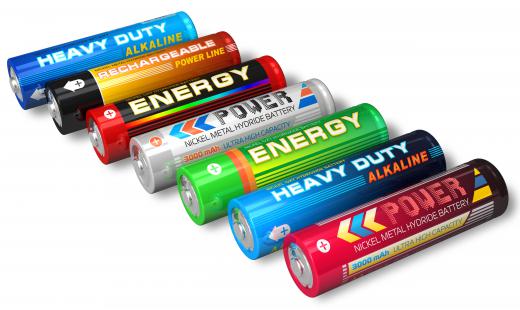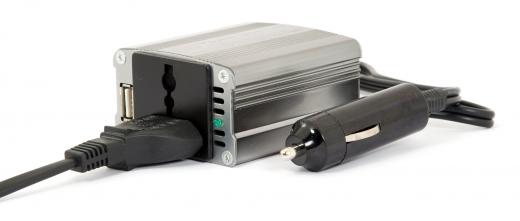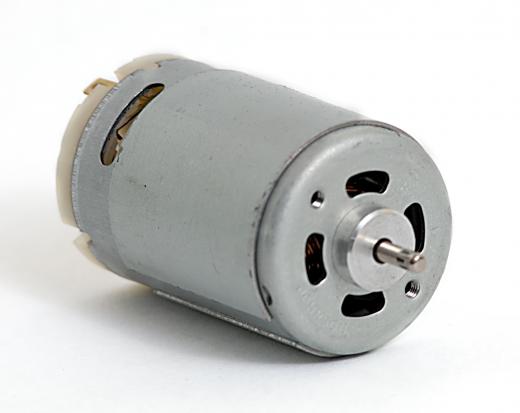Electricity is a type of energy that involves the movement of electrons along a conductor, such as a wire. The flow of electrons can occur in one direction or both directions along the wire. When electricity flows in one direction, it is referred to as direct current (DC). Alternating current (AC) is when the electrons flow in both directions — one and then the other. Batteries produce direct current, and electrical power grids that provide electricity to homes and other buildings use alternating current.
Direct Current

In nature, electricity occurs only rarely, in some animals or with lightning. In the search to create electrical energy, scientists discovered that electrical and magnetic fields are related. A magnetic field near a wire causes electrons to flow in a single direction along the wire because they are repelled and attracted by the poles of the magnet. This is how DC power from a battery was born, a development that is primarily attributed to American inventor Thomas Edison's work and promotion during the 19th century.
Alternating Current

In the late 19th century, another scientist, Serbian-American engineer Nikola Tesla, worked on developing AC because could transfer different amounts of power. Instead of applying the magnetism along the wire steadily, he used a magnet that was rotating. When the magnet was oriented in one direction, the electrons flowed toward the positive, but when the magnet's orientation was flipped, the electrons turned as well.
Voltage

Another difference between AC and DC involves the amount of energy that each one can carry. Every battery is designed to produce only one voltage level, and that voltage of direct current cannot travel very far until it begins to lose energy. AC voltage from a generator in a power plant can be bumped up or down in strength by another mechanism, called a transformer.
Transformers

Transformers are used wherever an electrical voltage needs to be increased or decreased. For example, they are commonly seen on electrical poles. A power plants produces electricity at a very high voltage so that it can travel great distances. The voltage must be reduced, however, before the electricity reaches homes and other buildings that use it to power appliances, machinery and other devices. AC also can be changed to DC by an adapter, such as the kind used to power the battery on a laptop computer.
